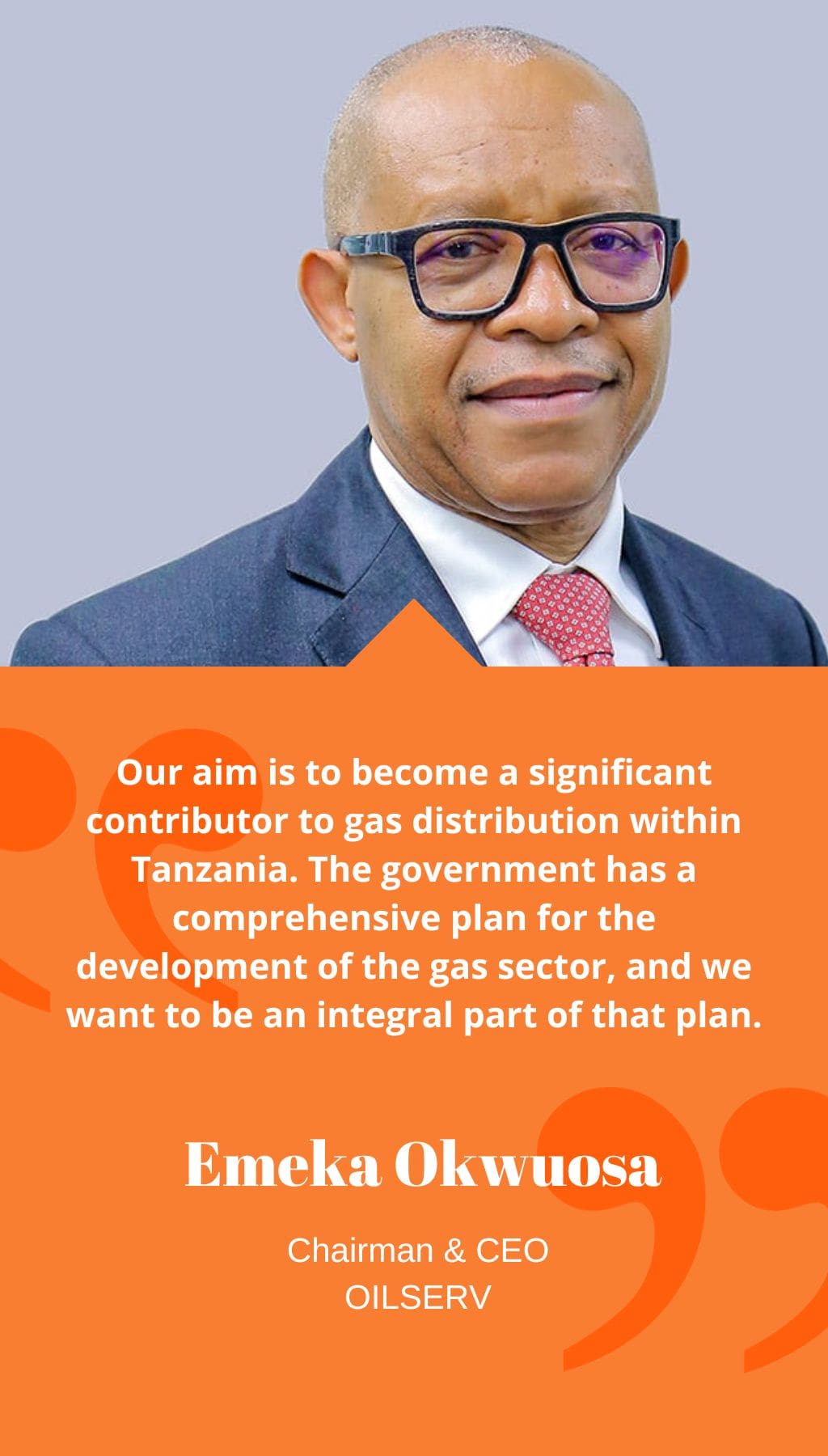
- Tanzania | 24 April 2018

How has your company’s portfolio evolved over the years, and what are your current flagship projects?
Oilserv started its operations in 1995, initially working exclusively for Shell for five years. As we gained experience and expertise, we diversified our client base to include other international oil companies (IOCs) and Nigerian LNG companies, focusing on maintaining their pipeline transmission systems. Our strong technical background, driven by my vision and experience working for Schlumberger worldwide, positioned us as a company capable of delivering world-class services. We began by constructing flow lines for Shell and gradually expanded to building trunk lines, transmission pipelines, and manifold stations, including the largest facility of its kind in Nigeria, the 36-inch TNP Manifold in Ebubu. Today, our service delivery covers pipelines and flow lines of all sizes, with a significant focus on gas pipelines as distribution systems are expanding throughout the country. We have established ourselves as the primary indigenous construction company in this sector, having constructed over 30 pipelines, surpassing any other indigenous company in terms of numbers. Currently, we have the capacity to work on 10 pipeline projects simultaneously, and we are actively engaged in nine projects. Notably, we are undertaking the construction of a 48-inch diameter pipeline, which will be the largest in Africa. Our capabilities extend beyond construction, as we offer full engineering, procurement, and construction (EPC) contracts, including maintenance services for 24 months following project completion. Oilserv employs over 500 people, and our operations span across Nigeria, with additional activities in other African countries.
How did your company position itself as the sole indigenous player providing world-class services?
Our ability to deliver world-class services as the sole indigenous player in the industry is a result of our focus on capacity building. Having a strong engineering background myself, Oilserv is driven by my vision as an engineer. Even before the enactment of the Local Content Act, we were competing with international companies, winning contracts, and efficiently delivering projects. Our track record of high-quality delivery has solidified our reputation, but we are also cost-effective. Our robust engineering background allows us to deliver results at a lower cost compared to multinational companies. From the beginning, we invested in training our workforce in the use of heavy-duty and specialized equipment, and we continue to prioritize capacity building. Each year, we select 30 to 40 graduates to join our graduate program. As some university curricula in Nigeria do not align directly with specific industries, we guide graduates towards the oil and gas sector and instill our culture of quality delivery through internal training programs. This approach ensures client satisfaction. We stay up-to-date with the latest technology in pipeline construction and are one of the few companies with the capacity to deploy and operate horizontal directional drilling (HDD) systems, which minimize environmental impact. We were pioneers in deploying automatic and semi-automatic welding systems on a large scale, significantly increasing our welding capacity. Furthermore, our investments include the introduction of heavy-duty Volvo PL pipe layers to Nigeria. Our commitment to capacity building and technological advancement has propelled us to where we are today. We also reinvest in our business, resulting in a substantial asset base spread over a large area, enabling us to handle multiple projects simultaneously.
Could you provide more information about your operations in Tanzania?
We are currently bidding for a gas pipeline project in southern Tanzania, covering several hundred kilometers. Additionally, we have expressed interest in building and developing 15 compressed natural gas (CNG) systems. Our aim is to become a significant contributor to gas distribution within Tanzania. The government has a comprehensive plan for the development of the gas sector, and we want to be an integral part of that plan. We have emphasized to the Tanzanian government that we aim to replicate our successes in Nigeria by training local individuals, empowering them to eventually take over the operation and management of these systems. Capacity building is highly valued in most East African countries, and our solid plan backed by experience in this area is appealing. Ultimately, we believe capacity building is the key to sustainable progress in the industry.














